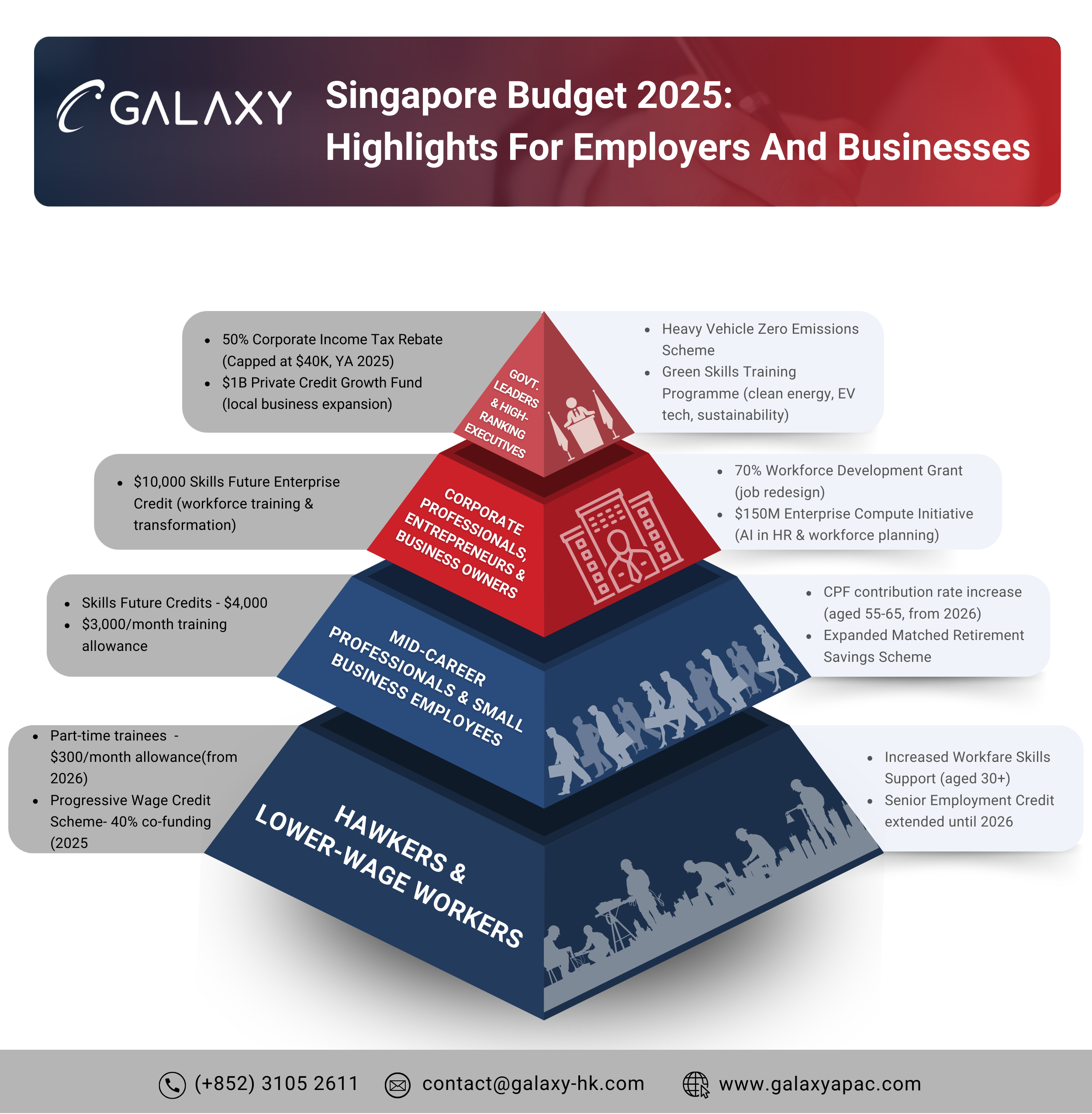Building Trust in Short-Term Employment - 7 Key Strategies

As economies progresses, employer-employee relationship trends at times witness upside-down shifts. In the past, employees and employers have expectations of long-term work commitments. In today’s era of work, employees have a higher focus on work-life balance and look for more flexibility in work. On the other hand, as the marketplace evolves, companies have a higher need for access to more specialised roles.
Short-term employment has therefore become a prevalent trend across the globe, especially, in the Asia-Pacific (APAC) region. This is driven by the gig economy, project-based roles, and evolving workplace dynamics. However, since the employees are engaged for a specific or short duration, building trust among them is challenging.
This article will explore what short-term employment entails and strategies to build trust with short-term employees.
What Is Short-Term Employment ?
Short-term employment refers to a work arrangement where employees are hired for a fixed duration, often ranging from a few weeks to a few months. Unlike traditional long-term roles, these positions are time-line focused, project-based, seasonal, or require specific expertise.
Freelancers or consultants for specialised tasks, temporary staff for peak business periods, and project teams for short-term assignments, all come under the short-term employment category.
Importance Of Building Trust In Short-Term Employment
Just like long-term employees, trust needs to be established for those under short-term work arrangements. This is because of the following reasons:
- Enhanced Productivity: trust creates a positive work environment which leads to employee engagement and higher productivity.
- Reputation and Branding: Trustworthy organisations gain positive feedback in the market, attracting top talent even for short-term roles, thereby building a strong brand image.
- Retention of Knowledge: Employees who trust their employers do not hesitate to share knowledge with peers and trained successors, minimizing disruptions when they leave.
- Collaboration and Innovation: Trust enables employees to stay collaborated and share innovative ideas, leading to long-term business growth.
- Ethical and Sustainable Practices: Trust reflects the company’s commitment to employee respect and engagement which aligns to long-term sustainability and ethical practices.
Building Trust In Short-Term Employment – 7 Key Strategies
Building trust among employees is challenging, especially for short-term engagements. It requires intentional strategies tailored to meet the needs of the business. Here are key strategies that companies should adopt:
1.Create Inclusivity Through Employee Orientation And Effective Communication : The initial experience of employees, whether long-term or short-term, plays a crucial role in establishing trust. Creating a welcoming environment from day one reduces the “outsider” complex that short-term employees might experience. This would help foster better collaboration and develop the team dynamic. One of the best starts is to conduct an effective orientation by introducing new short-term employees to team members and vice-versa.
To add further, the exercise of effective communication will help build a foundation of trust. Businesses must provide detailed contracts, outlining roles, responsibilities, expected outcomes, and expected timelines. This will help ensure that short-term employees are well-informed about compensation, benefits, and company expectations.
2.Know About Your Team and Extend Support : Businesses who have a better understanding of their short-term employees’ backgrounds, skills and motivations, are best suited to tailor assignments or feedback to align with the individual’s strengths. This will also significantly help increase employee productivity and build employee confidence.
Additionally, extend support by :
- Encouraging them to learn from mistakes without fear of blame, acknowledging your own errors to set an example of accountability.
- As it is a short-term engagement, it is important to be able to provide guidance and constructive solutions.
- It is also important to equip short-term employees with the right tools and resources for them to do the job and meet expectations.
When short-term employees feel prepared and supported, they are more likely to trust the organisation and deliver high-quality work.
3.Respect Ideas and Use Feedback Constructively : Actively listen to short-term employee suggestions and give assurance that their feedback is acknowledged.
Recognise and appreciate innovative ideas to problem-solving and offer constructive feedback that focus on improvement rather than criticism.
4.Foster Approachability and Friendliness : Short-term employees are more likely to trust leaders who are friendly and approachable. Creating an open communication channel where they can feel comfortable sharing concerns and conducting informal interactions helps maintain a positive and supportive demeanor, even in challenging periods during their short employment.
5.Honor Your Commitments : In lieu of the nature of short-term employment, keeping to your commitments is particularly important when building trust with short-term employees. Do ensure that you fulfil all your commitments made to short-term employees :
- payment schedules and role expectations.
- timely delivery of resources or support promised during onboarding.
- Consistency in action builds credibility. Therefore,
- Uphold company values uniformly across all employee levels.
- Clearly communicate expectations and follow through consistently.
- Demonstrate reliability in all interactions.
6.Create An Equitable Environment : An equitable environment has to exist to build trust with short-term employees. Therefore, companies should ensure:
- that they offer competitive and fair compensation,
- access to the same tools and resources as other employees,
- provide additional benefits like completion bonuses, access to wellness programs or flexible work arrangements (if possible),
- consistent and ethical treatment of all employees,
- implement fair policies that reflect the company’s values.
7. Highlight Growth and Networking Opportunities : While short-term roles may not always lead to full-time positions, companies can foster a good relatiolnship by demonstrating long-term value. Consider:
- facilitating networking opportunities within and outside the company,
- providing certificates of service or endorsements for future work opportunities,
- supporting employees in exploring company-wide roles across other projects or regions.
Being transparent about growth avenues demonstrates genuine care for the short-term employee’s future with the company.
Conclusion
Although there is currently a shift from long-term to short-term employment trends, it is essential for a business to not lose focus on it’s mission and organisational culture. However, taking strategic advantage of short-term employment might be challenging for HR teams who need to focus more on their core operations rather than short-term employee management.
In this regard, partnering with an EOR service provider can present a win-win situation for both your company and your employees. Engage Galaxy Payroll Group as your partner for short-term employment. As a leading EOR service provider in the APAC region, we can help simplify short-term employment operations like onboarding, compliance assurance, payroll management and employee support.
Read our latest guide on: How to Hire International Employees: A Comprehensive Guide
Building Trust With Short-Term Employees
Partner with Galaxy Payroll Group, a leading EOR service provider in APAC. Let us handle the brunt work while you focus on core business operations.
FAQ’S
How can trust be established in short-term roles?
Trust can be built by offering open communication channels, clear expectations, constructive feedback, resource support, equitable treatment and adhering to mutually agreed commitments.
Why is building trust important for short-term employment?
Trust fosters better collaboration and helps improve productivity. When trust in the company is established, short-term employees are more motivated to share ideas and train new incoming colleagues or replacements. Lastly, a happy short-term employee will likely give positive feedback in the marketplace which helps build a positive employer brand for the business.
What role does transparency play in building trust?
Clear visibility on roles, goals, challenges and expected outcomes reflects transparency in the system. This energizes mutual understanding and helps avoid misconceptions.







